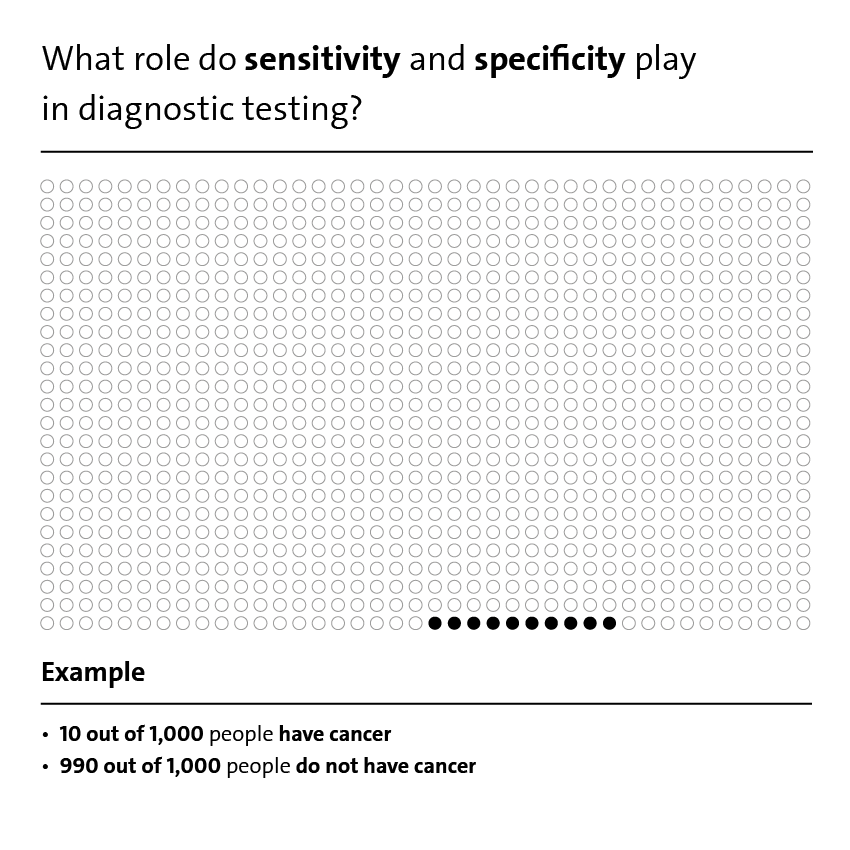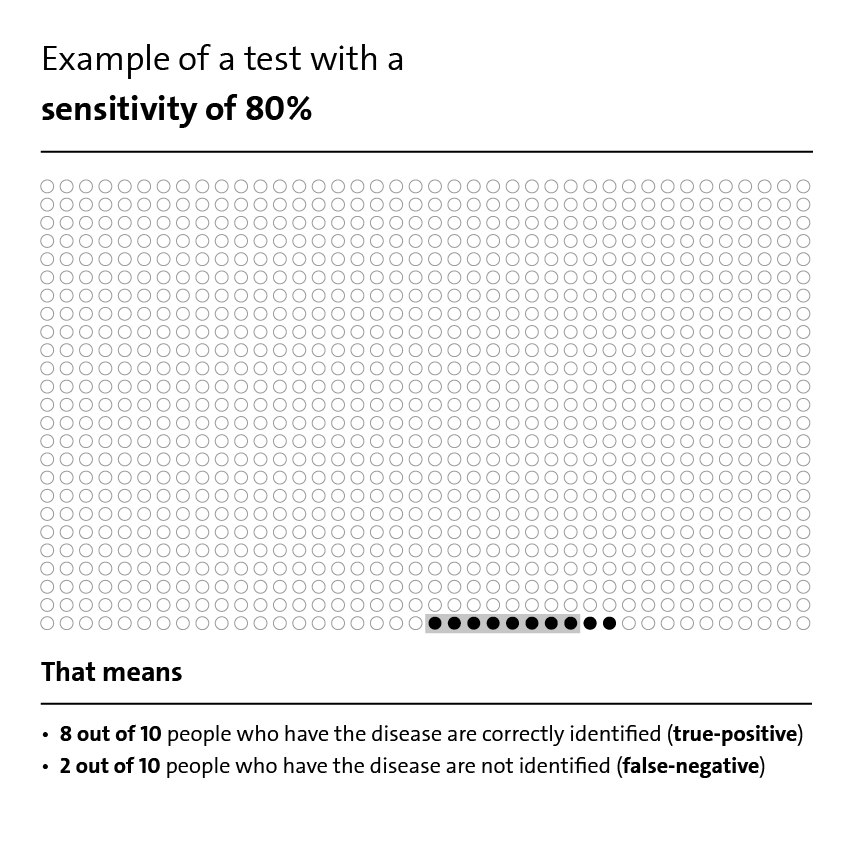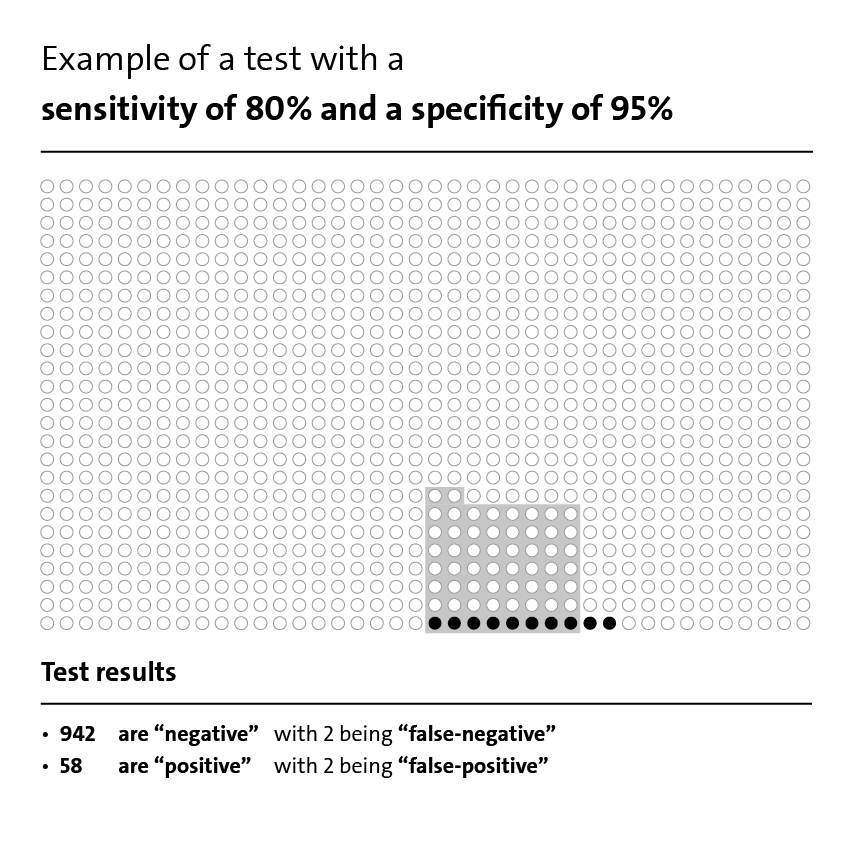In medical terminology, a test that correctly identifies people with a certain disease (“positive” result) has a high “sensitivity.” In other words, it finds almost all people with the disease.
A test that correctly identifies people who don’t have the disease (“negative” result) has a high “specificity.” That means the test result is usually only abnormal if the person actually has the disease.
The following example explains how this works:
What does sensitivity mean?
What does specificity mean?
The same test has a specificity of 95%:
- The result for around 940 out of 990 people without the disease is normal (true-negative).
- The result for around 48 out of 990 people is abnormal (false-positive).
This means the test delivers a
- negative result for 944 people that is wrong (false) in two cases.
- positive result for 56 people that is false in 48 cases.
This is a completely realistic example highlighting the disadvantages of screening for a lot of people. The uncertainty they face while waiting for their test result to be checked can be stressful. And they often have to have more tests, like a biopsy (where a tissue sample is taken), in order to be sure. Those tests in turn can cause stress or result in complications.
Healthcare professionals like to record test results in a two-by-two table. showing all the results they need. The table for the example above would look like this, for instance:
World Health Organization (WHO). Screening programmes: a short guide. Increase effectiveness, maximize benefits and minimize harm. 2020.
IQWiG health information is written with the aim of helping people understand the advantages and disadvantages of the main treatment options and health care services.
Because IQWiG is a German institute, some of the information provided here is specific to the German health care system. The suitability of any of the described options in an individual case can be determined by talking to a doctor. informedhealth.org can provide support for talks with doctors and other medical professionals, but cannot replace them. We do not offer individual consultations.
Our information is based on the results of good-quality studies. It is written by a team of health care professionals, scientists and editors, and reviewed by external experts. You can find a detailed description of how our health information is produced and updated in our methods.
Stay informed
Subscribe to our newsletter or newsfeed. You can find our growing collection of films on YouTube.



